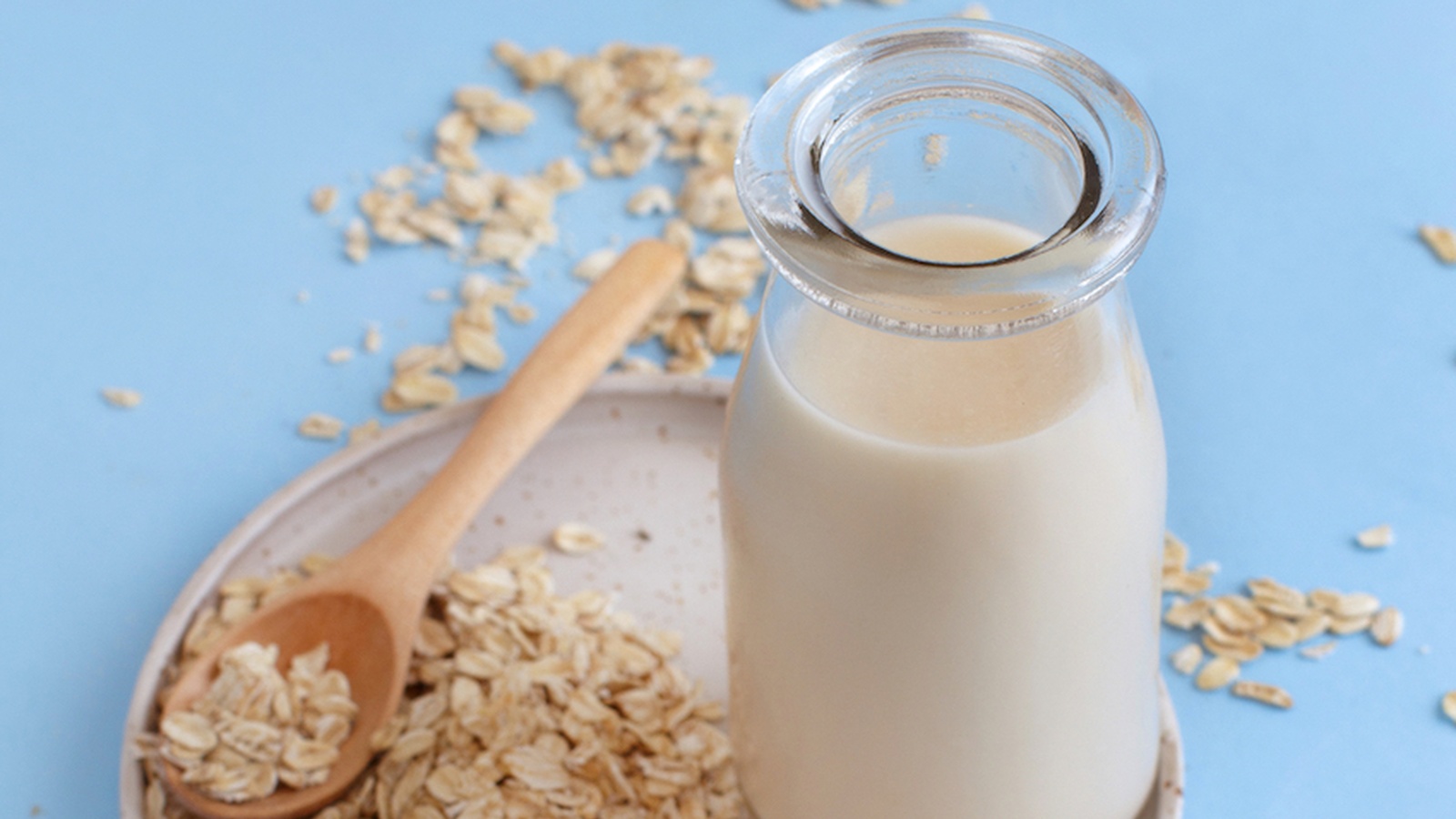Oat Milk: Nutrition, Benefits, and How to Make It
Whether you’re looking for a creamy addition to your favorite hot beverage or to top up your bowl of granola, the menu for milk is constantly expanding. It seems with every season, there is a new, sensational alternative burgeoning health benefits that it’s counterparts lacked. With the long list of substitutes penning a short novel, we decided to cut through the white noise (or milk if you will) and give you the insights one of the healthiest, tastiest and most environmentally friendly milk alternatives - oat milk.
So What is Oat Milk?
What started out as a dairy-free alternative, soon became a fixture in cafes and convenience stores alike, given its long list of health benefits and palatable taste.
Consisting of steel-cut oats or whole groats that are soaked in water, the mixture is then blended and strained with cheesecloth or special nut milk bag. The result comes in the form of a creamy, flavorsome milk alternative, without added ingredients and hormones.
Oat milk has also been heralded environmentally conscious by its consumers, as the process by which it is produced leaves a friendlier footprint than that of other plant-based alternatives. As a comparison, Almonds require almost six times as much water to grow as oats do, not to mention the process by which it takes to liquify. Meaning that, by drinking oat milk, you can look good and feel great (about the environment too).
The Health Benefits of Oat Milk
Oat milk is a great choice for people on a plant-based, vegan or dairy-free diet, and is also suitable for those with nut allergies and gluten intolerance (if certified gluten-free oats are used).
Not only does oat milk provide a delicious replacement to cow-based milks in your meals and beverages, but oats are also packed with nutritional goodies and are a great source of the following vitamins and minerals:
Oats are also famous for their high amounts of fiber, particularly beta-glucans which are linked to improved immunity, gut health, and heart health. One study of men with moderate hypercholesterolemia found that drinking about 3 cups (750 ml) of oat milk daily over 5 weeks reduced total blood cholesterol by 3% and “bad” LDL cholesterol by 5%.
With so many nutrients packed into these humble oats, the benefits they bring are numerous and include elevating mood, lowering blood sugar, promoting healthy skin, hair, and nails, and may help prevent Type 2 Diabetes.
Additionally, commercial oat milk is often fortified with vitamins A, D, B2, and B12, and added calcium which is beneficial for bone health.
Choosing Your Oat Milk
While we celebrate the nutritional benefits of oat milk, it’s important to note that not all oat milk is the same.
If you’re purchasing commercial oat milk, the red flags to look out for on the nutritional label include:
- Added sugars
- Artificial sweeteners
- Artificial flavors
- Gluten (check for gluten-free oats if you are intolerant or coeliac)
Instead, opt for:
- Unsweetened
- Certified gluten-free
- Organic
How to Make Your Own Oat Milk
To gain the most benefit from oat milk we suggest you make your own! It’s incredibly easy and what’s more, you know exactly what you’re consuming.
INGREDIENTS
- 1 cup rolled oats (look for gluten-free)
- 3 cups filtered water + 1 extra cup for soaking
- 1 pinch sea salt
Optional
- 1 whole date, pitted or 1 tbsp maple syrup
- 1/2 tsp vanilla extract or cinnamon
METHOD
- Soak the oats in 1 cup of water for half an hour. This helps create creamy milk.
- Strain your soaked oats and add to a high-speed blender with 3 cups of filtered water, a pinch of sea salt and optional ingredients, if using.
- Blend the mixture until smooth and creamy.
- Pour the mixture through cheesecloth to separate the oat milk from the oats. This is optional, skip this step if you don't mind a bit of texture in your milk.
- Store your oat milk in a glass bottle in your refrigerator for up to five days.
Have you tried oat milk? Let us know in the comments below!
Do you have a passion for nutrition & natural healing?. Learn more about the Food Matters Nutrition Certification Program here.









